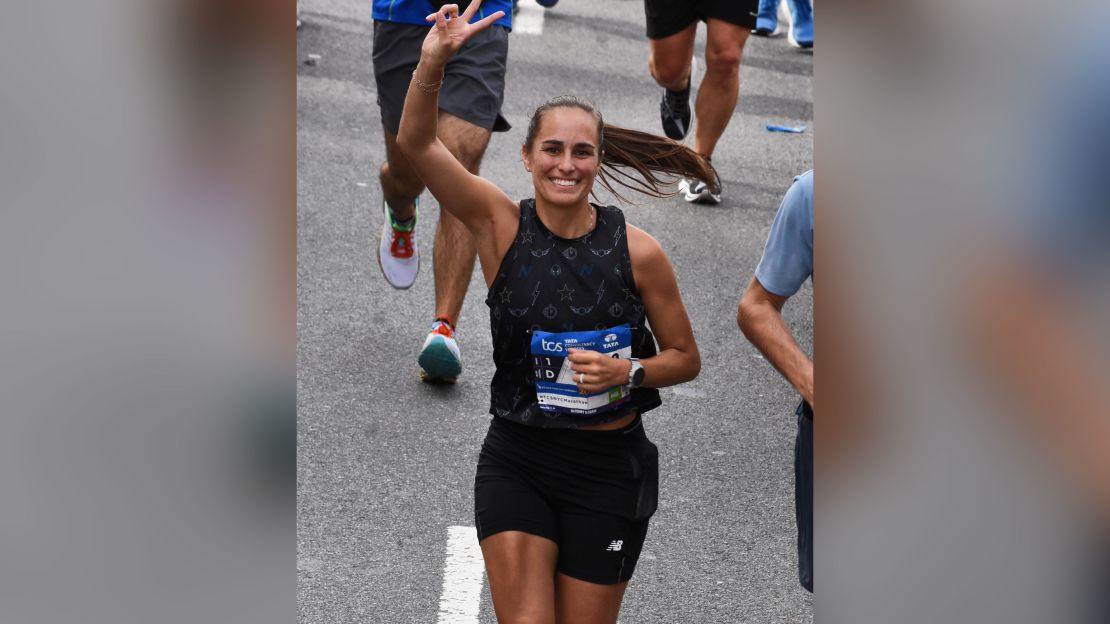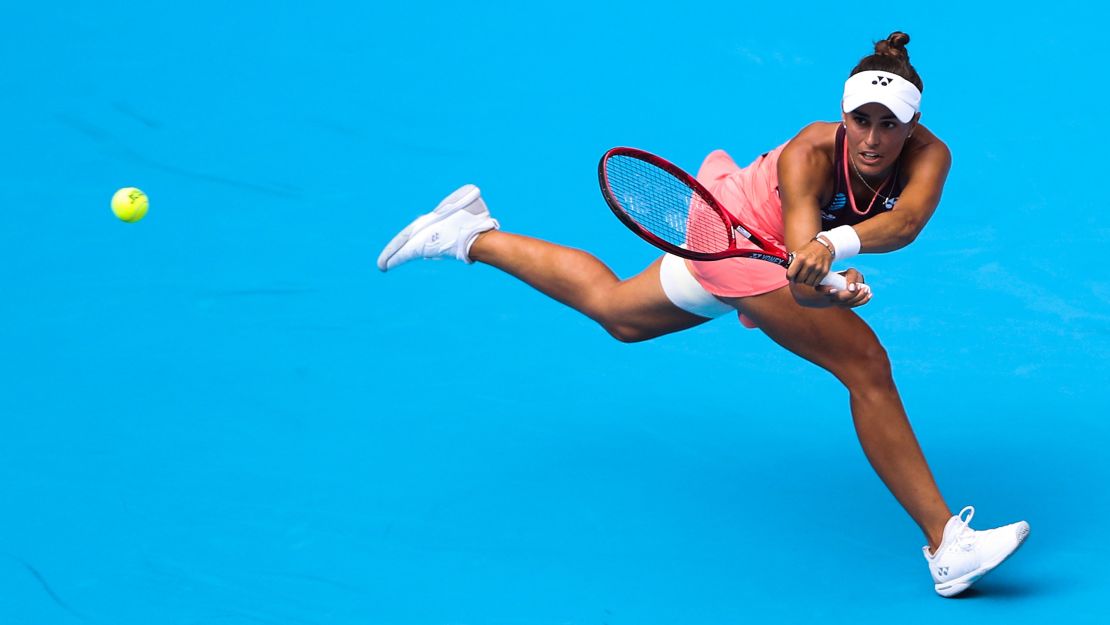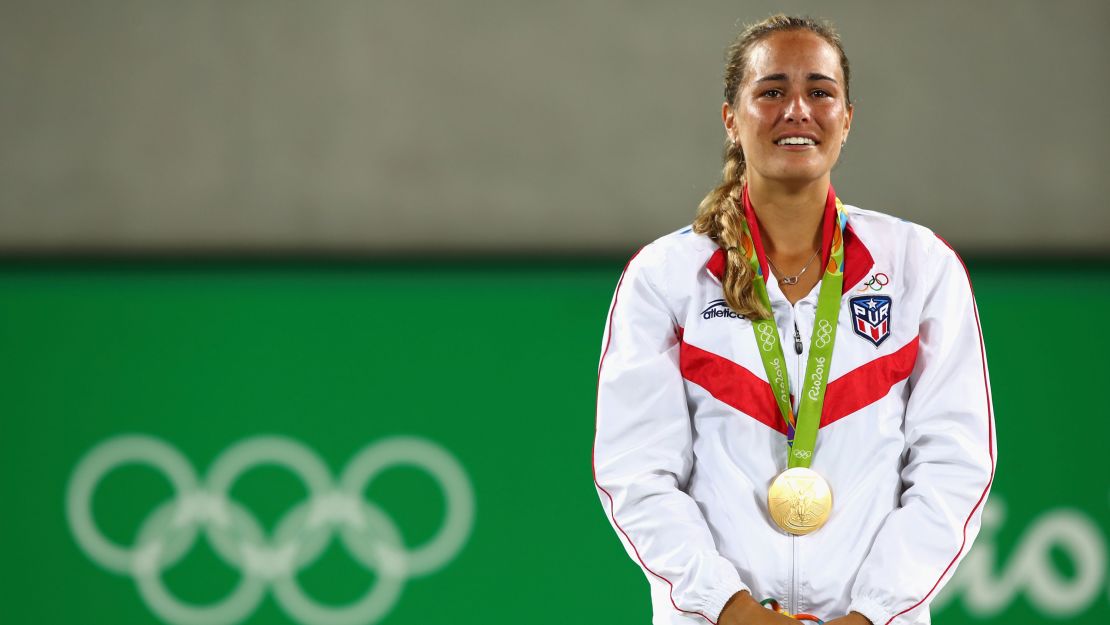CNN
—
Monica Puig won more than 300 matches during her tennis career and the feeling afterwards was often the same: relief, excitement, and satisfaction that the weeks and months of sacrifice and preparation had paid off.
Today, exactly a year after shoulder issues forced her to retire aged 28, Puig is still able to revisit some of those winning emotions without picking up a tennis racket or stepping foot on a court.
She’s turned to running marathons – first in New York City, then in Boston and London on back-to-back weekends earlier this year and is already halfway towards her goal of completing all six of the world’s marathon majors by the end of 2024.
“Every time I cross the finish line of a marathon and I get a new personal best time, I get emotional, I’ve cried,” Puig tells CNN Sport.
“I’ve just felt in awe of what I’ve been doing because I could easily just be sitting on the couch crying and feeling sorry for myself. But I tried to channel all of that energy that I have towards whatever I had been feeling about my career into something more productive.”
Completing a marathon, Puig says, feels “very similar and very different” to winning a tennis match. With tennis, the stakes felt higher when rankings points, global recognition, and prize money were on the line.
But the sense of personal satisfaction she gets from running has endured, helping to ease the lingering pain of her retirement from tennis.
“It’s more about showing myself that I didn’t let myself fall into this big black hole of depression and sadness when I had to finish my career so early,” Puig adds.
“I was able to pick myself back up and find something else that motivates me to get out of bed every day, that motivates me to continue to be strong, fit, and have fun at the same time.”
Puig reached a career-high ranking of No. 27 in the world and won one WTA Tour title in 2014. Her crowning moment arrived two years later when she won Olympic gold in Rio – Puerto Rico’s first-ever gold medal at the Games.
As a tennis player, Puig always saw running as a form of punishment – never enjoyment. It became a means to clear her head when she was rehabbing from injuries and, over time, she started to increase the distance of her runs – three miles became five, five became eight, then eight became half and full marathons.
Now, Puig has also set her sights on competing in triathlons, as well as running the remaining marathon majors in Chicago, Berlin, and Tokyo. Her first half Ironman – a 1.2-mile swim, 56-mile bike, and 13.1-mile run – is in Augusta, Georgia, in September, and she plans to race another back home in Puerto Rico next year.

An amateur runner and triathlete, it’s a sharp transition from her life as one of the best tennis players in the world, though Puig thinks her experience of the latter has benefited the former.
“You are competing against yourself,” she says of all three disciplines, “you are your biggest enemy or supporter out there. What you think can either push you or it can limit you.
“In tennis, I’m not going to say my mental fortitude was my strength because a lot of the time I didn’t know how to deal with negative thoughts, but I feel like everybody matures at their own time mentally.
“Doing the marathons and triathlon has really helped my mentality to grow and to develop this can-do attitude towards everything that I do. It’s also thanks to tennis that I have a certain discipline … All of that discipline has really helped me to stay in shape and stay true to my goals.”
Elbow surgery in 2019 followed by three shoulder surgeries in three years ultimately signaled the end to Puig’s tennis career. She played her first match since 2020 at the Madrid Open last year, but the shoulder problems persisted.
There were times, Puig says, that she couldn’t sleep on the affected side, such was the pain in her shoulder. Moreover, the mental toll of constant rehab and almost four years away from regularly competing on the tour was starting to mount.

“It felt like I was pushing a stone up a mountain and the stone kept squashing me as I kept getting further and further,” says Puig.
“I obviously believed that I could come back, I believed in myself enough. Last year, I had full intention of playing again competitively.
“But when I saw my surgeon after the last time I was on the court, he said, ‘Look, I have to be honest with you, your shoulder – it’s not doing well. And we can’t just keep opening up your shoulder to fix it every single time it goes wrong.”
Not ready to walk away from tennis entirely, Puig still hopes to play exhibition matches in the future. She returned to the practice court recently and had to temper expectations from fans, who interpreted footage posted on social media as the start of a competitive comeback.
But Puig has remained involved with the sport as a broadcaster, enabling her to engage with the game in a different way compared to her playing days.
“When I commentate or I’m watching matches, I’ve noticed that my understanding of the game has gotten a lot better,” she says. “I feel like I’m smarter and I can see things, I can notice things. I study the game a lot better than when I was playing.
“My understanding for tennis has grown and I wish that I was still playing so I could implement some of the things that I see and have that knowledge translate onto what I do on the court.”

Puig adds that she still misses tennis, particularly when she watches her contemporaries thrive at grand slams.
With her shoulder never going to be as it was prior to the surgeries, she’s come to accept her body’s limitations and is honing her swimming technique to withstand the rigors of Ironman-distance triathlons.
“I’ve learned to handle my shoulder in a different way and knowing that, if there is pain, then it’s okay to stop, it’s okay to take a break, it’s okay to say that you’re not feeling 100%,” says Puig.
“Usually, when I was trying to come back last year, I would play through pain and that wasn’t necessarily something that felt very good. It was very challenging and involved a lot of tears.”
What she has instead developed over the past year is “a new life” and “a new way of doing things.”
“I want to continue to do this for my whole life; I see people well into their fifties, sixties, still doing triathlon and doing Ironman,” says Puig.
“That’s something that I want to continue to do … I don’t know how far I’ll get or anything like that, but the sky’s the limit.”


